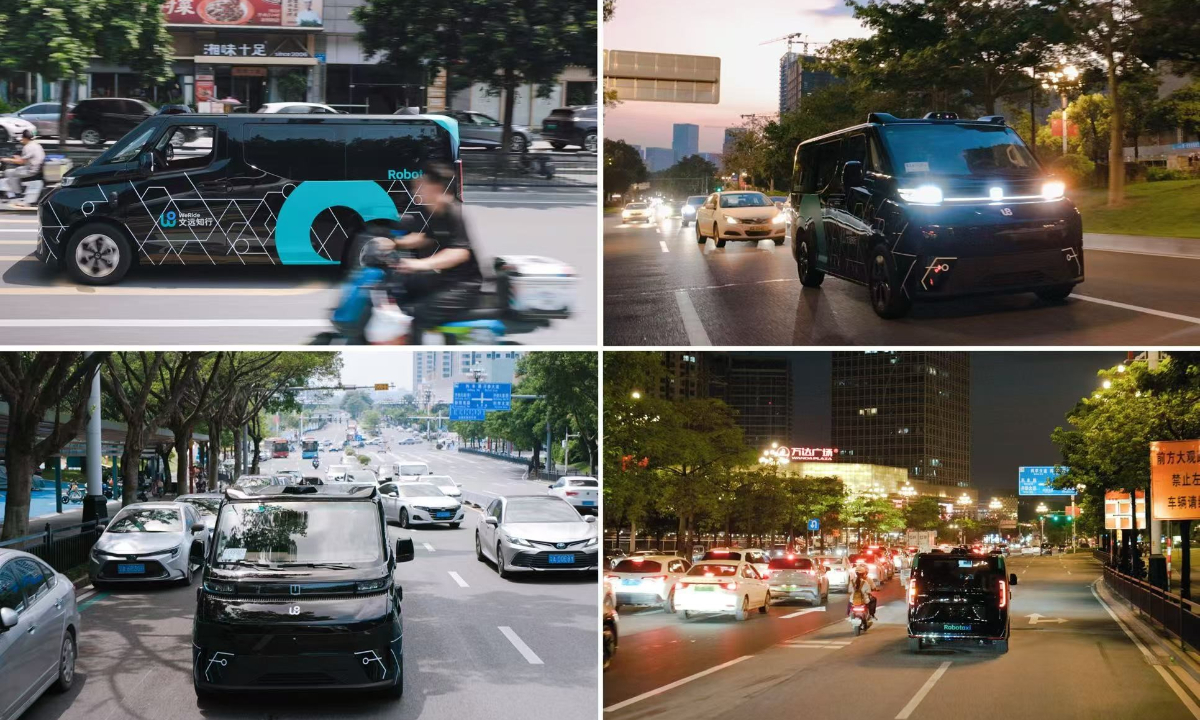
The WeRide GXR robotaxi. Photos: Courtesy of WeRide
Chinese autonomous driving firm WeRide launched on Tuesday its latest robotaxi model, the GXR. It comes after Tesla's release of its CyberCab, which is also intended to serve as a public taxi and shared transportation services.
WeRide's new GXR "has industry-leading L4-level autonomous driving capabilities for public roads. It can smoothly handle complex scenarios such as rush hour traffic, mixed traffic of people and vehicles, and nighttime high-speed driving," According to the press release sent to the Global Times, noting that the company has already carried out autonomous driving technology development and operations in seven countries and 30 cities worldwide.
"Autonomous driving relies heavily on integrating infrastructure and other technologies like 5G, [with a need for] massive data support. These factors have helped Chinese enterprises gain a competitive edge internationally," Wu Shuocheng, a veteran automobile industry analyst, told the Global Times on Tuesday. Growth in the domestic industry and policy support will secure the leading position of Chinese companies and help cut costs in the robotaxi sector, Wu noted.
"Robotaxi technology is developing rapidly and has become a significant factor in the autonomous driving industry. With Chinese automakers accelerating their expansion into the robotaxi market, key development opportunities are expected to arise in the next five to 10 years," Wang Peng, an associate research fellow at the Beijing Academy of Social Sciences, told the Global Times on Tuesday.
Meanwhile, Gong Xin, CEO of ride-hailing firm Cao Cao Mobility, said in a speech on Monday that the company plans to deploy a fully customized robotaxi model in the coming years as their approach to the growing robotaxi market. By leveraging nine years of accumulated operational experience, Cao Cao Mobility will build an automated operating system covering all scenarios, according to a report by BJNEWS.com.cn.
China's autonomous driving sector is evolving rapidly and there has been an expansion of road testing around the country. Chinese public security authorities have issued a total of 16,000 test licenses for autonomous vehicles so far, and 32,000 kilometers of roads nationwide have been opened for autonomous vehicle testing, Xinhua reported on August 27, citing data from the Ministry of Public Security.
Robotaxi development is expected to encourage collaborative growth across the entire industry chain, including areas such as sensors, high-precision mapping, and cloud computing. By expanding into the robotaxi market, Chinese automakers will also support the upgrading and transformation of the entire industry chain, according to Wang.




